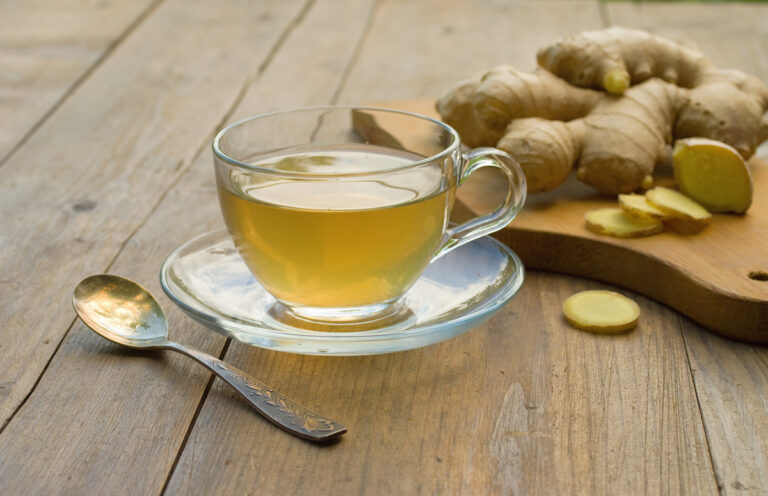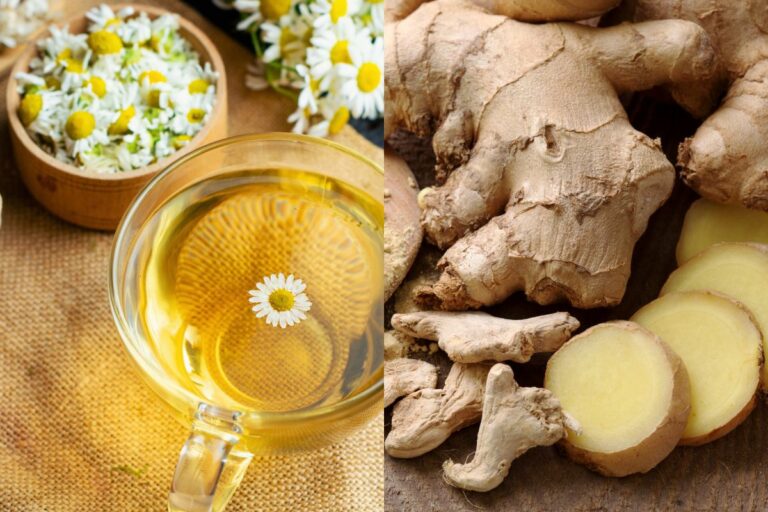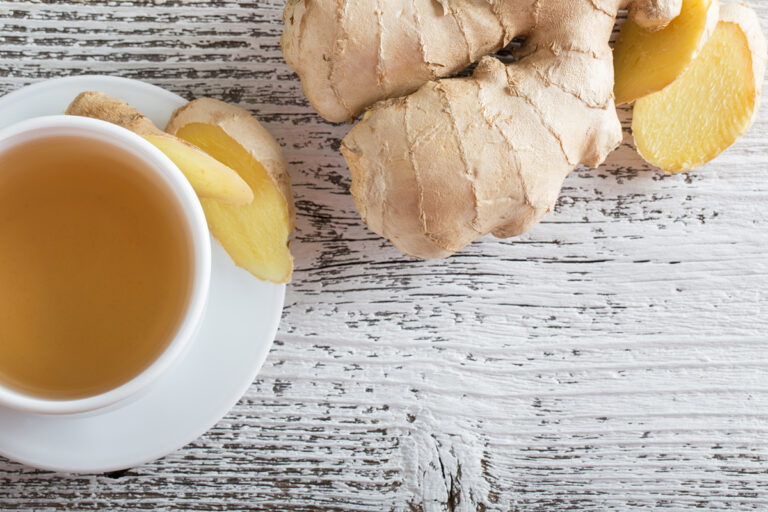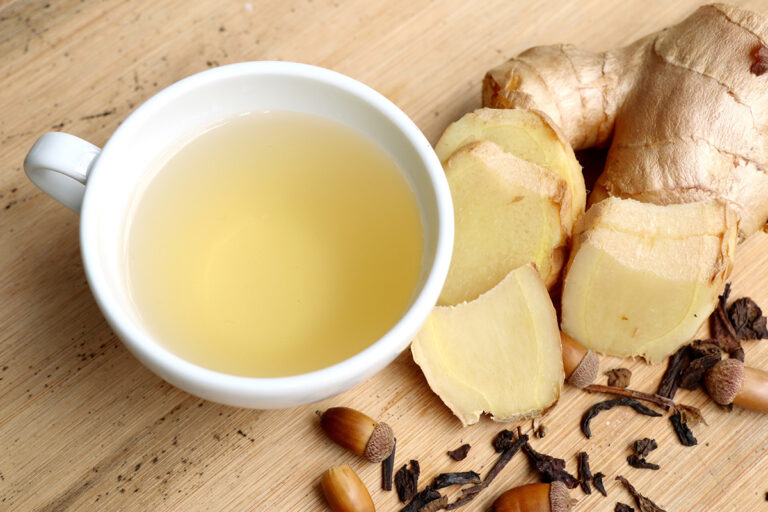Does Ginger Tea Stain Teeth?
With its ability to enhance digestion and decrease inflammation, ginger tea has become a beloved beverage for its health advantages. However, many people ask: does ginger tea stain teeth? After all, many teas and other drinks have the potential to discolor teeth over time.
The quick answer is no; ginger tea doesn’t stain teeth because it has no tannins. The pH level of ginger tea is in the neutral range, measuring 7 to 7.5.

Why Doesn’t Ginger Tea Stain Teeth?
Ginger tea doesn’t stain teeth because of its low or non-existent tannin level and neutral acidity. But what exactly are tannins, and what does it mean for tea to have neutral acidity?
Three key reasons account for why tea may cause staining on teeth.
- Tannins: Tea leaves, among other plants, contain these compounds. They can bind to proteins in dental enamel and cause staining. Tannins also make it easier for other substances, like chromogens, to stick to teeth.
- Chromogens: These are pigments that give tea (and other foods and drinks) its color. Chromogens are often dark in color and can easily adhere to tooth enamel. They’re especially problematic when combined with tannins.
- Acidity: If tea is too acidic, it can erode tooth enamel and make teeth more susceptible to staining. Acidic beverages can also create rough spots on teeth where stains can accumulate.
Besides Ginger Tea, Are Thee Others That Don’t Stain Teeth?
Ginger tea is not the only option for those looking to avoid tooth stains from their tea.
- Rooibos tea: Rooibos, a flavorful herbal tea, is made from the leaves of Aspalathus Linearis, native to South Africa. It has a slightly sweet, nutty flavor and is naturally caffeine-free. Rooibos tea doesn’t contain tannins or chromogens, so it’s less likely to cause staining on teeth.
- Peppermint tea: For millennia, peppermint has been recognized for its medicinal benefits as an herb. Peppermint tea has a refreshing minty taste and is naturally caffeine-free. Because it contains low tannins and chromogens, it won’t stain teeth like other teas.
- White tea: This tea is made from the young leaves and buds of the tea plant. It has a delicate flavor and is much lighter in color than other types of tea. Due to its minimal processing, white tea has fewer tannins and chromogens, reducing the risk of staining.
Potential Health Benefits of Ginger Tea
Ginger tea is a herbal tea that is made from fresh or dried ginger root. Drinking ginger tea may offer several advantages:
- Anti-inflammatory properties: Ginger contains gingerols and shogaols, two compounds that have anti-inflammatory effects on the body. According to some research findings, drinking ginger tea is believed to alleviate osteoarthritis-related pain.
- Digestive aid: Ginger has been a popular natural remedy for digestive issues for centuries. Drinking ginger tea can help stimulate digestion and relieve these symptoms.
- Immune system booster: Ginger has immune-boosting properties that can help protect against illness and disease. Drinking ginger tea may help strengthen your immune system and prevent infections.
- Heart health: Ginger may effectively reduce cholesterol levels and the risk of heart disease, as per certain studies. Drinking ginger tea regularly may be beneficial for heart health.
- Menstrual cramp relief: Ginger may have pain-relieving qualities, particularly concerning menstrual cramps. Drinking ginger tea during menstruation may help reduce pain and discomfort (1).
- Stress relief: The aroma of ginger has been shown to have calming effects on the mind and body. Drinking ginger tea may help reduce stress levels and promote relaxation.
Best Ginger Teas for You to Consider
If you’re planning to buy your first ginger tea or considering switching from your current ginger tea, here are some of the best ginger tea brands you might want to try.
Conclusion
To conclude, ginger tea is an exceptional option if you’re searching for a tea that won’t leave stains on your teeth. Unlike black or green tea, ginger tea doesn’t contain tannins or chromogens that can cause discoloration on teeth. Drinking ginger tea may also offer potential anti-inflammatory and digestive aid benefits.
In any case, it’s important to understand that preserving strong teeth and healthy gums involves following good oral hygiene routines such as regular brushing and dental visits.




